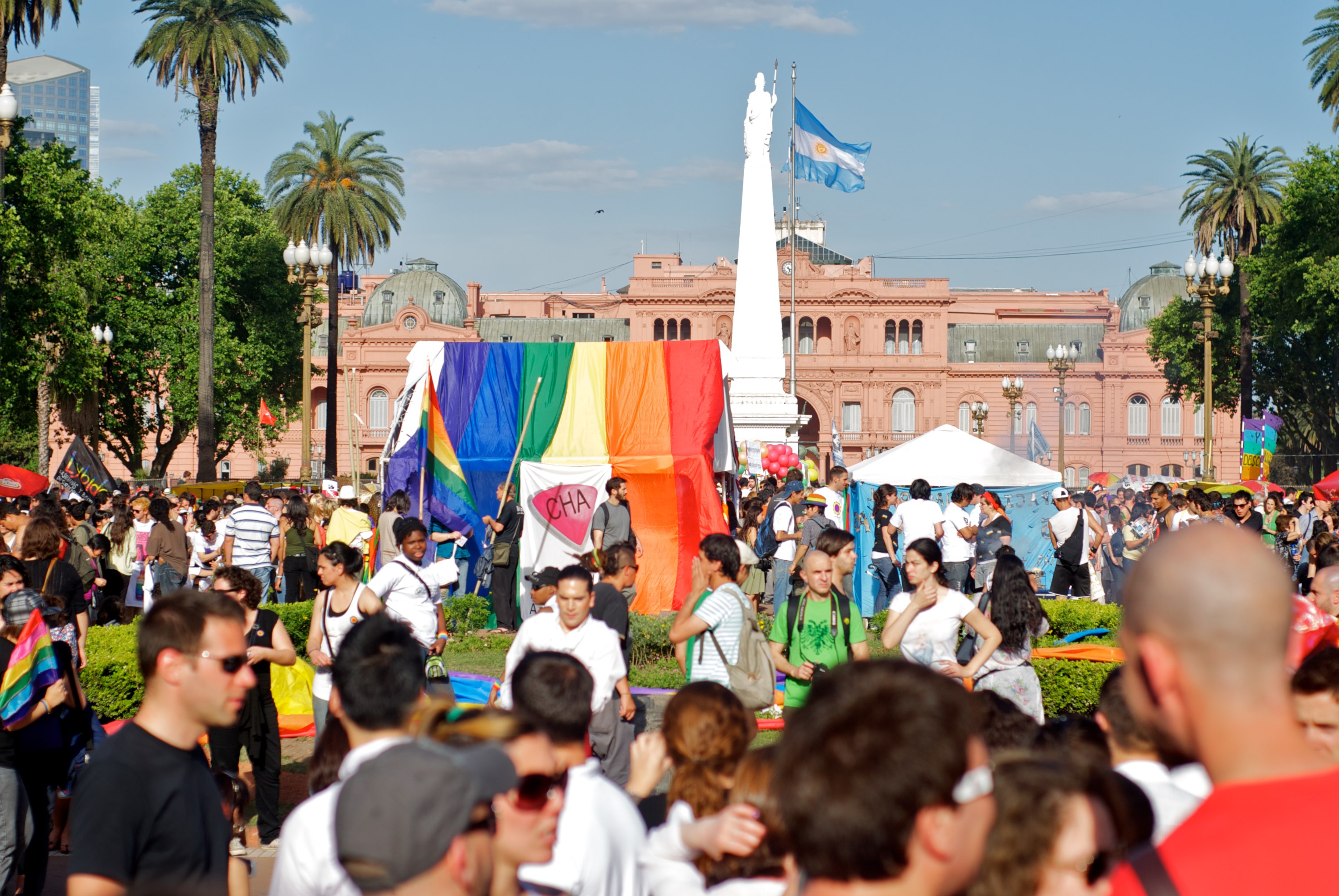|
G0y
G0y, also spelled as gØy or g-zero-y (pronounced "goy" or "g-zero-y"; the second character is the digit 0, zero, not the letter ''o''), is a subculture that appeared in the 2000s in the United States and has since spread to Brazil. The g0y self-identify as men who are attracted to men, but not as homosexual or bisexual. In such relationships, men consider hugging, kissing on lips, caressing, frotting, French kissing, handjobs and fellatio as acceptable. They do not participate in anal sex, seeing it as gay or even violent and dangerous. The g0y movement is inspired by the practices of Ancient Greece. Its adherents do not fight to be included in the LGBT civil movements. According to this same philosophy, G0ys do not like to be compared to members of the LGBT civil movements, because they do not practice penetration with other men. See also *Heteroflexibility *Latent homosexuality *Bicurious *Bromance *Frot *Homoeroticism References LGBTQ culture LGBTQ culture in Brazi ... [...More Info...] [...Related Items...] OR: [Wikipedia] [Google] [Baidu] |
Latent Homosexuality
Latent homosexuality is an erotic attraction toward members of the same sex that is not consciously experienced or expressed in overt action. This may mean a hidden inclination or potential for interest in homosexual relationships, which is either suppressed or not recognized, and which has not yet been explored, or may never be explored. The term was originally proposed by Sigmund Freud. Some argue that latent homosexuality is a potentially iatrogenic effect (that is, it is not present until suggested by a therapist). Others argue that the term latent is not truly applicable in the case of homosexual urges, since they are often not in the unconscious or unexpressed category, but rather exist in the conscious mind and are (often violently) repressed on a conscious level. Links to homophobia A theory that homophobia is a result of latent homosexuality was put forth in the late 20th century. A 1996 study from the University of Georgia by Henry Adams, Lester Wright Jr., and Betha ... [...More Info...] [...Related Items...] OR: [Wikipedia] [Google] [Baidu] |
HuffPost Brasil
''HuffPost'' (formerly ''The Huffington Post'' until 2017 and sometimes abbreviated ''HuffPo'') is an American progressive news website, with localized and international editions. The site offers news, satire, blogs, and original content, and covers politics, business, entertainment, environment, technology, popular media, lifestyle, culture, comedy, healthy living, women's interests, and local news featuring columnists. It was created to provide a progressive alternative to the conservative news websites such as the Drudge Report. The site offers content posted directly on the site as well as user-generated content via video blogging, audio, and photo. In 2012, the website became the first commercially run United States digital media enterprise to win a Pulitzer Prize. Founded by Andrew Breitbart, Arianna Huffington, Kenneth Lerer, and Jonah Peretti, the site was launched on May 9, 2005 as a counterpart to the Drudge Report. In March 2011, it was acquired by AOL for US$315&nb ... [...More Info...] [...Related Items...] OR: [Wikipedia] [Google] [Baidu] |
Ancient Greece
Ancient Greece ( el, Ἑλλάς, Hellás) was a northeastern Mediterranean civilization, existing from the Greek Dark Ages of the 12th–9th centuries BC to the end of classical antiquity ( AD 600), that comprised a loose collection of culturally and linguistically related city-states and other territories. Most of these regions were officially unified only once, for 13 years, under Alexander the Great's empire from 336 to 323 BC (though this excludes a number of Greek city-states free from Alexander's jurisdiction in the western Mediterranean, around the Black Sea, Cyprus, and Cyrenaica). In Western history, the era of classical antiquity was immediately followed by the Early Middle Ages and the Byzantine period. Roughly three centuries after the Late Bronze Age collapse of Mycenaean Greece, Greek urban poleis began to form in the 8th century BC, ushering in the Archaic period and the colonization of the Mediterranean Basin. This was followed by the age of Classica ... [...More Info...] [...Related Items...] OR: [Wikipedia] [Google] [Baidu] |
LGBTQ Culture In The United States
' is an initialism that stands for lesbian, gay, bisexual, and transgender. In use since the 1990s, the initialism, as well as some of its common variants, functions as an umbrella term for sexuality and gender identity. The LGBT term is an adaptation of the initialism ', which began to replace the term ''gay'' (or ''gay and lesbian'') in reference to the broader LGBT community beginning in the mid-to-late 1980s. When not inclusive of transgender people, the shorter term LGB is still used instead of LGBT. It may refer to anyone who is non-heterosexual or non-cisgender, instead of exclusively to people who are lesbian, gay, bisexual, or transgender. To recognize this inclusion, a popular variant, ', adds the letter ''Q'' for those who identify as queer or are questioning their sexual or gender identity. The initialisms ''LGBT'' or ''GLBT'' are not agreed to by everyone that they are supposed to include. History of the term The first widely used term, ''homosexual'', ... [...More Info...] [...Related Items...] OR: [Wikipedia] [Google] [Baidu] |
LGBTQ Culture
LGBT culture is a culture shared by lesbian, gay, bisexual, transgender, and queer individuals. It is sometimes referred to as queer culture (indicating people who are queer), while the term gay culture may be used to mean "LGBT culture" or to refer specifically to homosexual culture. LGBT culture varies widely by geography and the identity of the participants. Elements common to cultures of gay, lesbian, bisexual, transgender, and intersex people include: * Works by famous gay, lesbian, bisexual, and transgender people, including: **Contemporary LGBT artists and political figures like Larry Kramer, Keith Haring and Rosa von Praunheim. **Historical figures identified as LGBT, although identifying historical figures with modern terms for sexual identity is controversial (see History of sexuality). However, many LGBT people feel a kinship with these people and their work (particularly that addressing same-sex attraction or gender identity); an example is VictoryFund.org, dedicat ... [...More Info...] [...Related Items...] OR: [Wikipedia] [Google] [Baidu] |
Homoeroticism
Homoeroticism is sexual attraction between members of the same sex, either male–male or female–female. The concept differs from the concept of homosexuality: it refers specifically to the desire itself, which can be temporary, whereas "homosexuality" implies a more permanent state of identity or sexual orientation. It is a much older concept than the 19th-century idea of homosexuality, and is depicted or manifested throughout the history of the visual arts and literature. It can also be found in performative forms; from theatre to the theatricality of uniformed movements (e.g., the Wandervogel and Gemeinschaft der Eigenen). According to the ''Oxford English Dictionary'', it is "pertaining to or characterized by a tendency for erotic emotions to be centered on a person of the same sex; or pertaining to a homo-erotic person." This is a relatively recent dichotomyFlood, 2007, p.307. that has been studied in the earliest times of ancient poetry to modern drama by modern scholar ... [...More Info...] [...Related Items...] OR: [Wikipedia] [Google] [Baidu] |
Frot
Frot or frotting (slang for frottage; ) is a non-penetrative form of male-to-male sexual activity that usually involves direct penis-to-penis contact. The term was popularized by gay men activists who disparaged the practice of anal sex, but has since evolved to encompass a variety of preferences for the act, which may or may not imply particular attitudes towards other sexual activities. Owing to its non-penetrative character, frot has the safe sex advantage of minimizing the transmission risk for HIV/AIDS; however, it still carries the risk of skin-to-skin sexually transmitted infections, such as HPV and pubic lice (crabs), both of which can be transmitted even when lesions are not visible. Concept and etymology The modern definition of ''frot'' emerged in a context of a debate about the status of anal sex within the gay male community; some in the anti-anal, pro-frot camp insist that anal sex ought to be avoided altogether. One view argued that the popularity of anal ... [...More Info...] [...Related Items...] OR: [Wikipedia] [Google] [Baidu] |
Bromance
A bromance is a very close and non-sexual relationship between two or more men. It is an exceptionally tight, affectional, homosocial male bonding relationship exceeding that of usual friendship, and is distinguished from normal friendship by a particularly high level of emotional intimacy. The emergence of the concept since the beginning of the 21st century has been seen as reflecting a change in societal perception and interest in the theme, with an increasing openness of Western society in the 21st century to reconsider gender, sexuality, and exclusivity constraints. Etymology ''Bromance'' is a portmanteau of '' bro'' (or ''brother'') and ''romance''. Dave Carnie is credited with coining the term as editor of the skateboard magazine '' Big Brother'' in the 1990s to refer specifically to the sort of relationships that develop between skaters who spent a great deal of time together. The term did not attain broad currency until approximately 2005 when the theme became more pr ... [...More Info...] [...Related Items...] OR: [Wikipedia] [Google] [Baidu] |
Bicurious
Bi-curious is a term for a person, usually someone who is a heterosexual, who is curious or open about engaging in sexual activity with a person whose sex differs from that of their usual sexual partners. The term is sometimes used to describe a broad continuum of sexual orientation between heterosexuality and bisexuality. Such continuums include mostly-heterosexual or mostly-homosexual, but these can be self-identified without identifying as bisexual. The terms ''heteroflexible'' and ''homoflexible'' are mainly applied to bi-curious people, though some authors distinguish heteroflexibility and homoflexibility as lacking the "wish to experiment with sexuality" implied by the bi-curious label. To sum it up, the difference between bisexual and bicurious is that bisexual people know that they are sexually attracted to both genders based on personal experience. Bicurious people are still maneuvering their way through their sexuality. Etymology The term started becoming popular after ... [...More Info...] [...Related Items...] OR: [Wikipedia] [Google] [Baidu] |
Heteroflexibility
Heteroflexibility is a form of a sexual orientation or situational sexual behavior characterized by minimal homosexual activity in an otherwise primarily heterosexual orientation, which may or may not distinguish it from bisexuality. It has been characterized as "mostly straight". Although sometimes equated with bi-curiosity to describe a broad continuum of sexual orientation between heterosexuality and bisexuality, other authors distinguish heteroflexibility as lacking the "wish to experiment with ... sexuality" implied by the bi-curious label. The corresponding situation in which homosexual activity predominates has also been described, termed homoflexibility. Prevalence National surveys in the U.S. and Canada show that 3 to 4 percent of male teenagers, when given the choice to select a term that best describes their sexual feelings, desires, and behaviors, opt for "mostly" or "predominantly" heterosexual. With "100% heterosexual" being the largest assumed identity, "mostly ... [...More Info...] [...Related Items...] OR: [Wikipedia] [Google] [Baidu] |
LGBT Civil Movements
' is an initialism that stands for lesbian, gay, bisexual, and transgender. In use since the 1990s, the initialism, as well as some of its common variants, functions as an umbrella term for sexuality and gender identity. The LGBT term is an adaptation of the initialism ', which began to replace the term ''gay'' (or ''gay and lesbian'') in reference to the broader LGBT community beginning in the mid-to-late 1980s. When not inclusive of transgender people, the shorter term LGB is still used instead of LGBT. It may refer to anyone who is non-heterosexual or non-cisgender, instead of exclusively to people who are lesbian, gay, bisexual, or transgender. To recognize this inclusion, a popular variant, ', adds the letter ''Q'' for those who identify as queer or are questioning their sexual or gender identity. The initialisms ''LGBT'' or ''GLBT'' are not agreed to by everyone that they are supposed to include. History of the term The first widely used term, ''homosexual'', ... [...More Info...] [...Related Items...] OR: [Wikipedia] [Google] [Baidu] |
.jpg)




